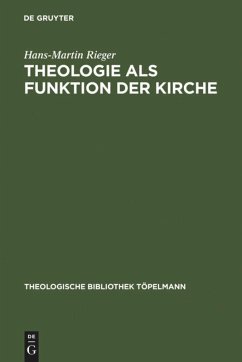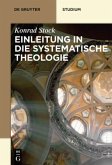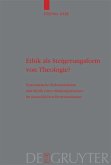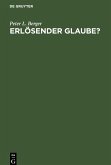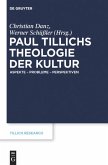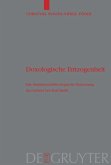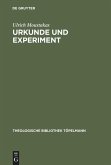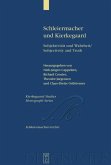In the modern age, the relationship between academic theology and the Church has become a fundamental problem. Theologiansâ?? attempts to tackle this issue come to widely differing conclusions in determining the relationship between theology and the Church, society and academe.
This study sketches and evaluates selected positions adopted by Protestant theologians from Schleiermacher up to the present day. The relationship proposed by the author is directed towards a theology which succeeds in combining the substantive positioning and definition of the place of the Church with the ability for interdisciplinary communication and is aware of its responsibility for the world of religion and culture.
Das Verhältnis zwischen wissenschaftlicher Theologie und Kirche ist in der Moderne zu einem Grundproblem geworden. Theologische Entwürfe versuchen ihm mit verschiedenen Auffassungen von Wissenschaftlichkeit und Kirchlichkeit der Theologie gerecht zu werden. Im Ergebnis unterscheiden sie sich stark - je nach vorausgesetzter Bestimmung des Gegenstands, des Wissenschaftsbegriffs und des Verhältnisses der Theologie zu Kirche, Gesellschaft und Universität. Die Empfehlungen reichen von einer praktischen Disziplin zur Optimierung der Kirchenleitung und einer Explikations- und Prüfungsinstanz christlicher Glaubenspraxis bis zu einer hermeneutischen Religions- und Kulturwissenschaft.
Die Untersuchung skizziert und evaluiert in wissenschafts- und fundamentaltheoretischer Hinsicht ausgewählte Positionen der modernen protestantischen Theologie. Die vorgestellte eigene Verhältnisbestimmung zielt auf eine Theologie, die inhaltliche Positionalität mit einem revidierten Verständnis von Funktionalität und Kirchlichkeit und mit interdisziplinärer Kommunikationsfähigkeit zu verbinden weiß. So vermag sie ihre Verantwortung für die Welt von Religion und Kultur wahrzunehmen und einen konstruktiv-kritischen Beitrag zum universitären System der Wissenschaften zu erbringen.
This study sketches and evaluates selected positions adopted by Protestant theologians from Schleiermacher up to the present day. The relationship proposed by the author is directed towards a theology which succeeds in combining the substantive positioning and definition of the place of the Church with the ability for interdisciplinary communication and is aware of its responsibility for the world of religion and culture.
Das Verhältnis zwischen wissenschaftlicher Theologie und Kirche ist in der Moderne zu einem Grundproblem geworden. Theologische Entwürfe versuchen ihm mit verschiedenen Auffassungen von Wissenschaftlichkeit und Kirchlichkeit der Theologie gerecht zu werden. Im Ergebnis unterscheiden sie sich stark - je nach vorausgesetzter Bestimmung des Gegenstands, des Wissenschaftsbegriffs und des Verhältnisses der Theologie zu Kirche, Gesellschaft und Universität. Die Empfehlungen reichen von einer praktischen Disziplin zur Optimierung der Kirchenleitung und einer Explikations- und Prüfungsinstanz christlicher Glaubenspraxis bis zu einer hermeneutischen Religions- und Kulturwissenschaft.
Die Untersuchung skizziert und evaluiert in wissenschafts- und fundamentaltheoretischer Hinsicht ausgewählte Positionen der modernen protestantischen Theologie. Die vorgestellte eigene Verhältnisbestimmung zielt auf eine Theologie, die inhaltliche Positionalität mit einem revidierten Verständnis von Funktionalität und Kirchlichkeit und mit interdisziplinärer Kommunikationsfähigkeit zu verbinden weiß. So vermag sie ihre Verantwortung für die Welt von Religion und Kultur wahrzunehmen und einen konstruktiv-kritischen Beitrag zum universitären System der Wissenschaften zu erbringen.
"Das Werk kann als signifikanter Beitrag des reformatorischen Denkens und gleichzeitig auch als ein unter ökumenischer Perspektive beachtenswerter Anstoß zur Lösung einer Angelegenheit gelten, die hochaktuell ist [...]"
Wolfgang Beinert in: Theologische Literaturzeitung 3/2009
"Rieger ist ein interessantes Buch gelungen, das zur Lektüre einlädt."
Dirk Fleischer in: Kirchliches Amtsblatt 1/2008
Wolfgang Beinert in: Theologische Literaturzeitung 3/2009
"Rieger ist ein interessantes Buch gelungen, das zur Lektüre einlädt."
Dirk Fleischer in: Kirchliches Amtsblatt 1/2008

